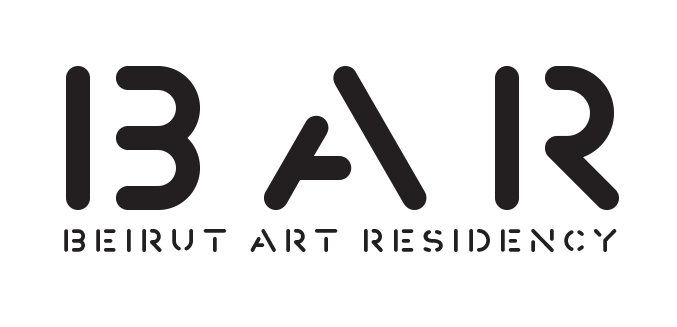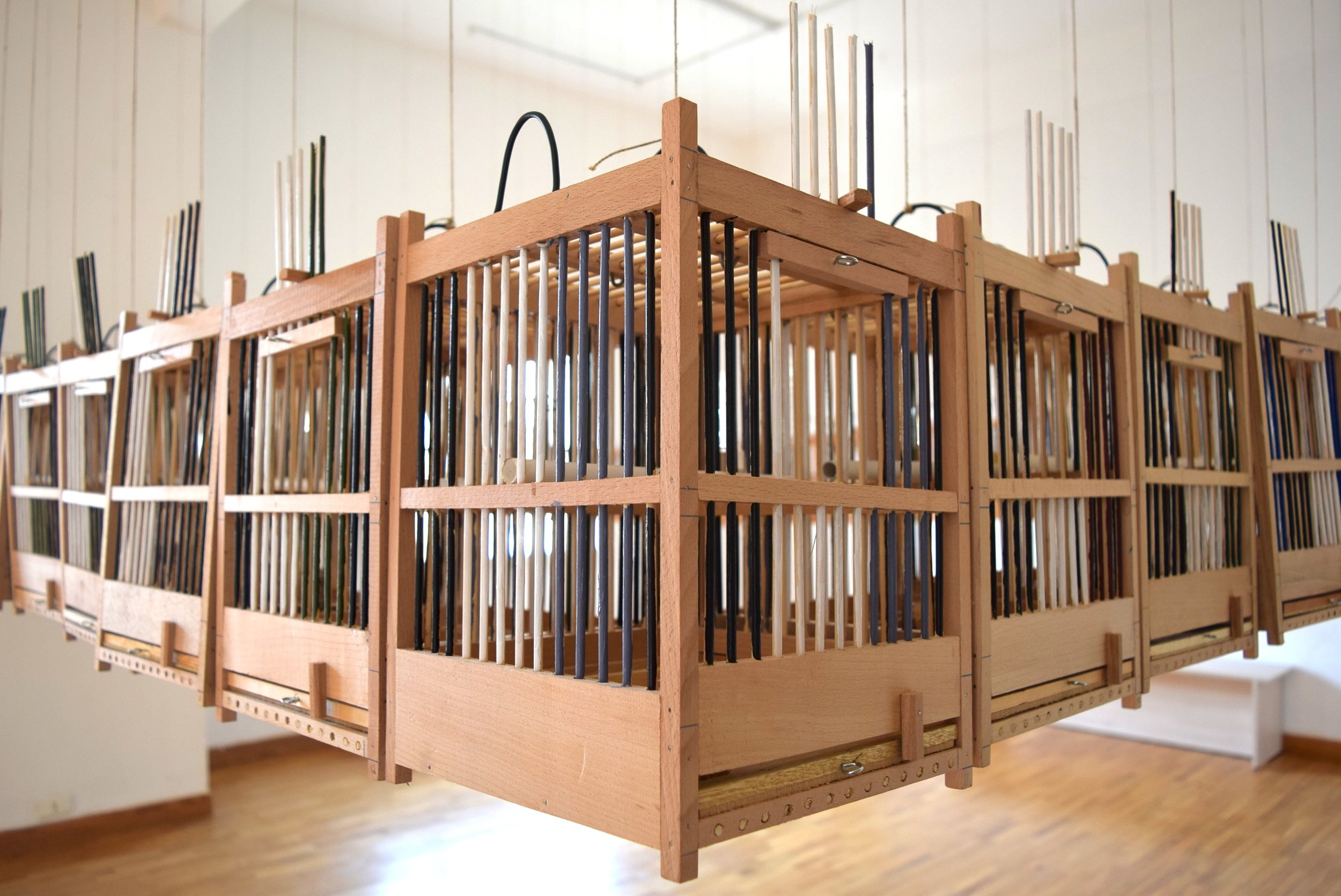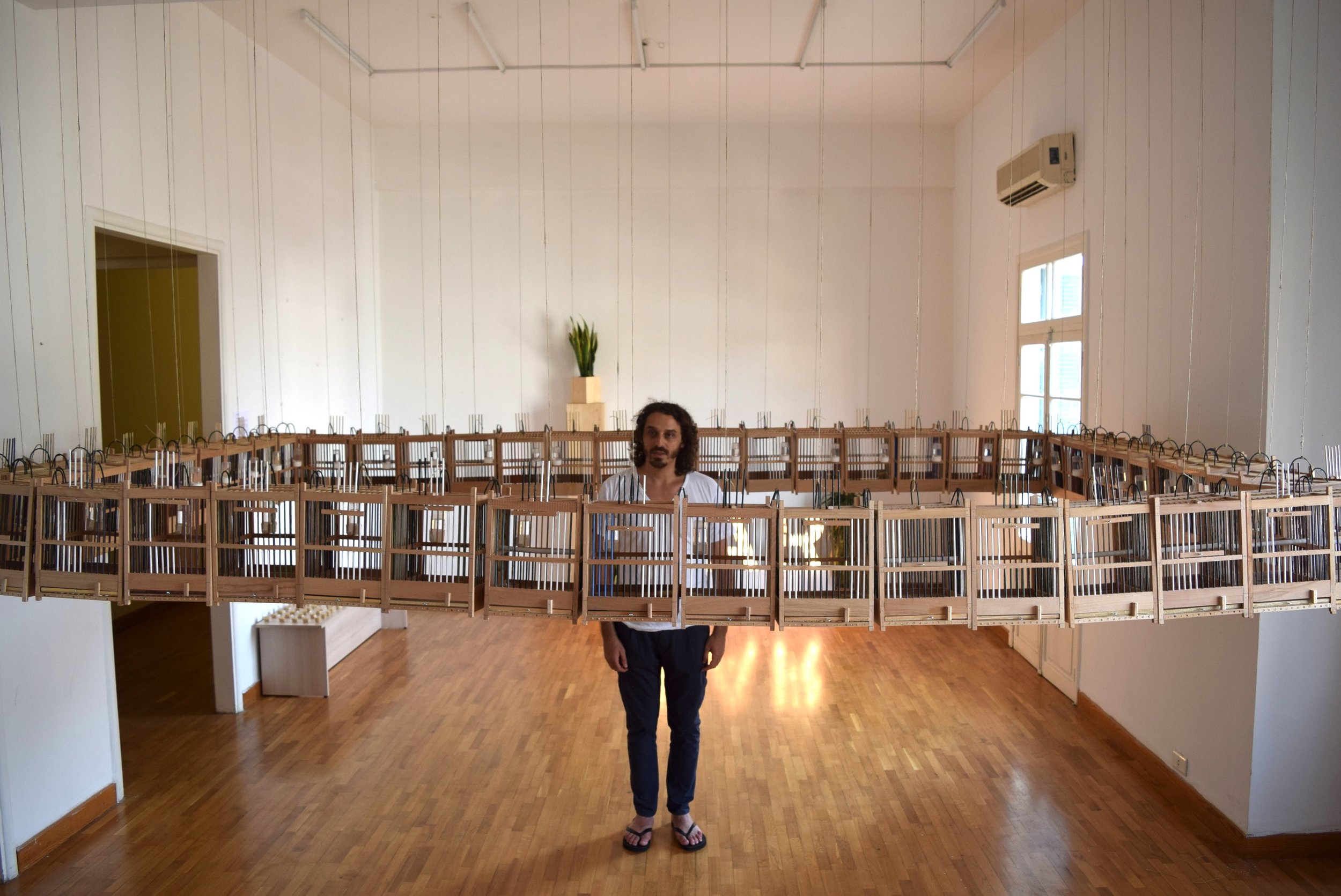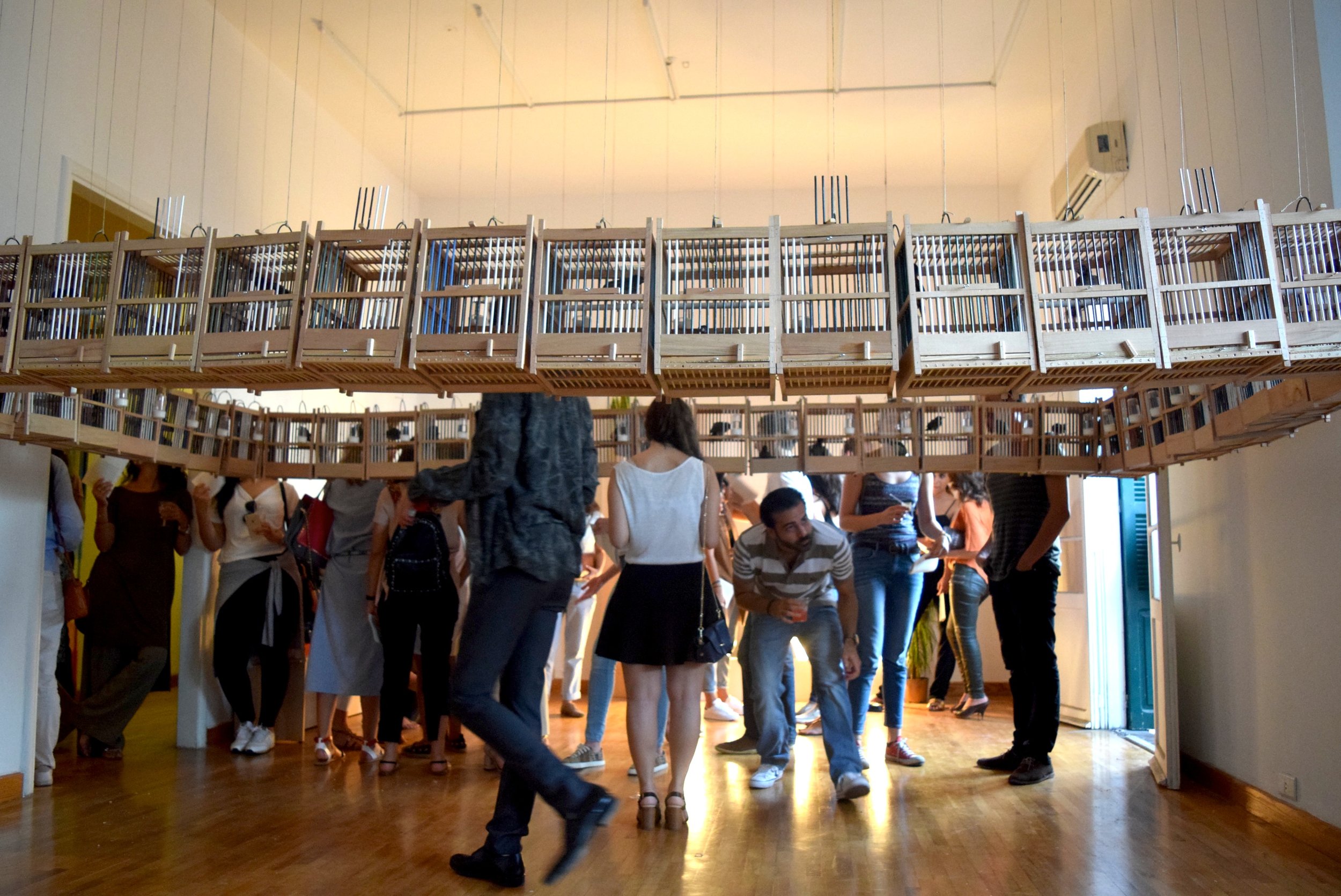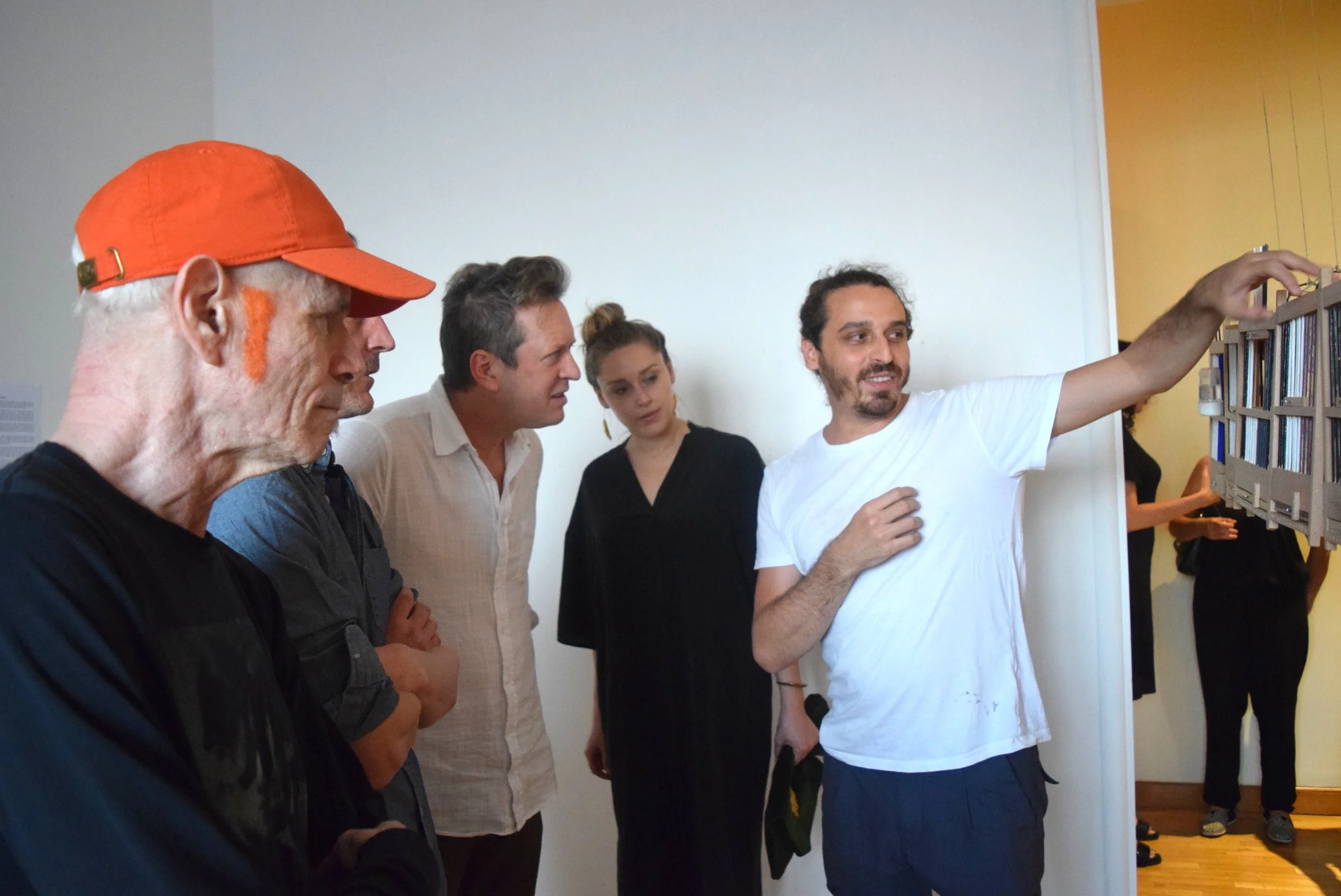Safe Sounds II
Ziad Antar
A Progressive Sound Installation
June 20-September 20, 2016
Opening Reception: June 20th, 6-9pm
The Beirut Art Residency (BAR) is pleased to announce a collaboration with Lebanese artist Ziad Antar. Safe Sounds II is a progressive and interactive sound installation that is an extension of Antar’s continuous investigation in sound and image. Using local birds known as ‘white-spectacled bulbuls’, the conceptual project follows the tradition of domesticating the animal in various regions of Lebanon.
For the purpose of this ongoing exploration, Antar created a tuneful structure in the residency’s studio space composed of birdcages housing the bulbuls. Attendees will actively take part in Antar’s project by taking home one or more bulbuls in painted wooden cages. After nurturing the birds over the course of three months each participant will set their bulbul free in the neighborhood of Gemmayze, Beirut – renowned as one of the last urban green spaces in the city.
Working alongside American University of Beirut (AUB) lecturer and color-specialist Dr. Yasmina Jreissati, the artist painted each of the cages’ fifty-two bars in black, white and dark hues. Each cage will have a unique pattern of the three colors. The orderly categorization of colors is not random but rather mimics the three pitches of the bulbul’s distinctive sound thus synchronizing a visual and auditory experience.
Perhaps the best-known aspect of Antar’s art, which ranges mainly across film and photography, is its use of unexpected techniques to create an impactful result. In a similar manner, the ultimate aim of this community project is to permanently alter the soundscape of the city as once these songbirds are bred, their loyal nature will keep them nearby.
Ziad Antar (b. 1978) is a Lebanese video artist and photographer. He studied Agricultural Engineering at the American University of Beirut before turning to video and arts with a residency at the Palais de Tokyo in Paris and a post-diploma of the École nationale supérieure des Beaux-Arts, Paris. Antar’s work has been acquired by several public collections, including Centre George Pompidou in France and the British Museum in the United Kingdom.
Guidelines
Thank you for your participation in Safe Sounds II.
By adopting a bulbul, you will be directly contributing to the enrichment of Beirut’s soundscape. To ensure the birds’ welfare is preserved in a humane manner, kindly find our rules and guidelines below.
I. The ultimate goal of the fostering program is to take care of the
bulbuls for a three-month period until their release in a new natural
habitat.
II. The time of the release of the bulbuls will be determined by the
bulbul’s capability to fly and survive independently. Depending on
the bird’s readiness, kindly release thebird before or by
September 20th, 2016.
III. To enhance the impact of this project, please document the release
of your bulbul via photo or film and post it on all relevant social
media (Facebook, Instagram, Twitter etc.) by using the
hashtags: #BulbulBeirut #ZiadAntar #BeirutArtResidency
IV. You must provide the bulbul with food and water at all times,
in addition to medical care when needed. A proper shelter
away from direct sunlight and summer heat is necessary. A shower
every other day is recommended (place a shallow water container
in the cage)
V. Ziad Antar has the right to examine and inquire about the bulbuls
at any reasonable time before the release as well as determine
whether they are receiving proper care
VI. In the event that you are incapable of caring for the bulbul, please
return it to Ziad Antar or contact the Beirut Art Residency
team
VII. It is strictly forbidden to give the birds to any animal shelter or pet
shop in or outside of Lebanon and/or to sell it to any third party
VIII. Ziad Antar and all parties involved (Beirut Art Residency,
PetTalkMagazine and Aishti Foundation) are not legally responsible
for any incidence of disease in the fostered bird detected or
diagnosed more than five calendar days after fostering
